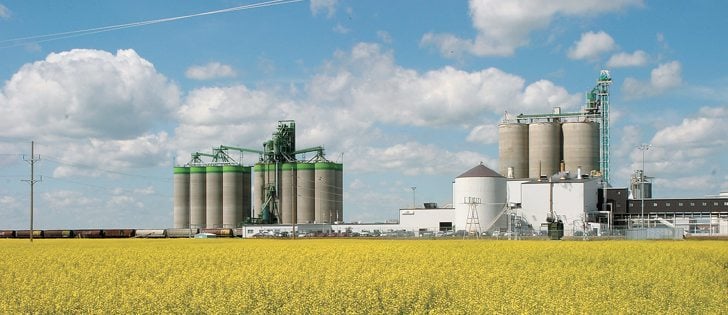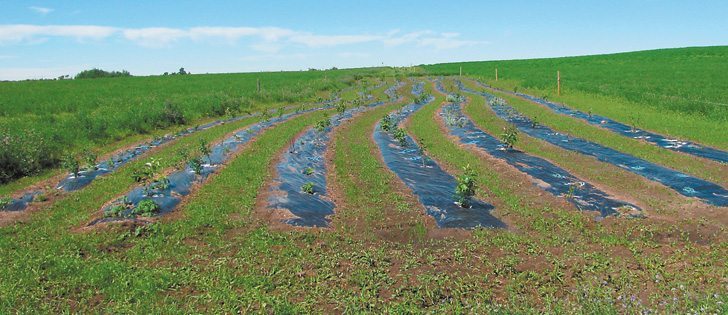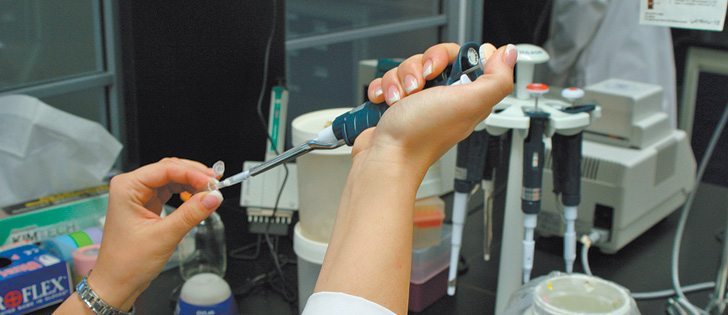Discipline needed Farmers investing in land and machinery face financial risk if ag commodities fall
Lots of people think farming is a great place to invest these days.
That might be true, but Virginia Tech farm finance expert David Kohl warns farmers that that’s how millions of people looked at Facebook just a few weeks ago.
“It’s called buying into the hype,” Kohl said.
The social media company’s shares opened at $42.50 May 18, rose momentarily to $45 before closing at $38 at the end of their first day of trading. By June 11, they were hovering at $26 to $28, a 46 percent drop from the opening.
Read Also

Farm groups ask feds for export sales reporting
The Agricultural Producers Association of Saskatchewan and SaskCrops asks the federal government to create an Export Sales Reporting program.
Investors could be in trouble if they used borrowed money to buy shares on that first day. Either way, they have lost a lot of money.
The Facebook analogy could apply to farmers who buy expensive land or equipment right before commodity prices fall for an extended period, Kohl said.
That’s something farmers need to guard against, even as they act rationally to replace labour with machinery and automation and attempt to gain production efficiencies with increased capital investments.
“If you take on equipment with a five- or seven-year payback period, what do you do if you have a negative margin at some time within that period?”
Kohl said farmers need to keep working capital inside the farm business to deal with profitability squeezes. Cash or near-cash equivalents need to be enough to handle times of low prices.
“There’s that fine balance,” he said.
“When you have high fixed costs, you have to have the discipline to hold that working capital.”
Farmers across Western Canada are investing vast amounts of money in land and equipment to maximize efficiency and replace labour.
Western Canada’s booming oil industry has made labour expensive and scarce, and at times unobtainable in remote farming areas.
Farmers have responded by replacing labour with capital goods, but doing that with debt replaces a production problem with a financial risk. Commodity prices are volatile, but debt is firm and must be serviced regardless of crop or livestock prices.
Kohl said Canada isn’t the only place grappling with this problem.
Farmers in Pennsylvania and Ohio are facing the same problems as in the West, with the natural gas industry luring away local pools of labour.
Kohl said farmers now face additional problems with labour because of the complexity of farm machinery and systems.
“In today’s modern farm-ranch business, you can’t just hire someone off the street,” said Kohl.
“You need people who can follow protocols. One screw up and you’ve lost a lot of profit.”
Kohl said the lack of “qualified labour” on his own farm, which he operates with his son, convinced him to buy a new processor for his dairy last year. That purchase increased his bottom line by 1.5 percent, which is good.
He also bought cow-calf pairs for $800 to $1,000 three years ago.
“Those girls are looking pretty good right now,” he said.
However, his good fortune in reinvesting in his farm might not be shared by someone doing the same thing in the future when the market is about to reverse.
“You have to do proactive planning,” said Kohl.
Sufficient working capital to survive a downturn is a necessity or all the profits made in a good year can be lost in a bad year if it occurs after a farmer has made a debt-based investment.
“In this environment, a lot of people are playing double, triple, quadruple jeopardy,” said Kohl.
“You can take all your earnings and double down and lose it all very, very quickly. It requires discipline to have that working capital.”















